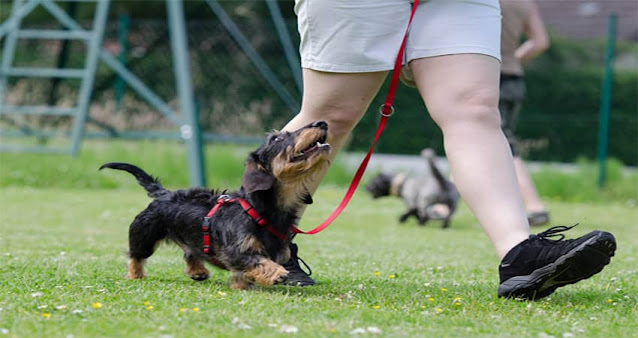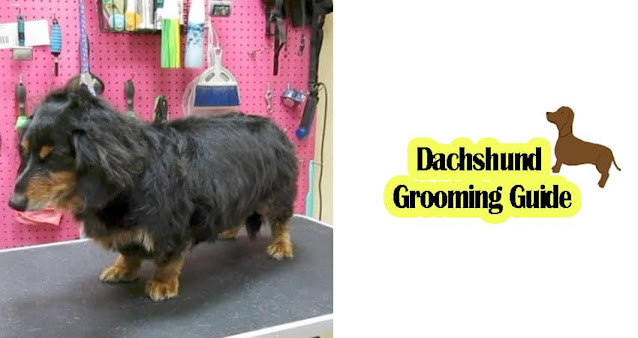Dachshunds Dogs
Dachshunds, often affectionately called "wiener dogs" or "sausage dogs," are a small breed of dogs with a distinct appearance and spirited personality. Originating in Germany, Dachshunds were initially bred for hunting badgers, hence their elongated bodies and short legs that allowed them to burrow into tunnels. Today, these adorable canines have become popular companion dogs cherished for their loyalty, affection, and playful nature. Dachshunds come in different sizes, including standard, miniature, and even toy varieties.
They have expressive eyes, floppy ears, and a variety of coat types and colors, such as smooth, longhaired, and wirehaired. Despite their small stature, Dachshunds possess a courageous and confident character, making them fearless protectors of their families. They are known for their intelligence and can be eager learners, although they may sometimes exhibit a stubborn streak. With their loving nature, adaptability to various living environments, and undeniable charm, Dachshunds have rightfully earned their place as beloved companions and cherished family pets around the world.
Why Dachshunds are the Best Dogs?
Dachshunds, also known as doxie dogs, sausage dogs, or wiener dogs, are renowned worldwide for their adorable appearance and lively nature. Despite their small stature, these short-legged friends exhibit remarkable courage and fearlessly confront animals larger than themselves. While some dachshunds may display aggression towards strangers and other dogs, they are incredibly loyal and make excellent watchdogs when part of a loving family. When treated well, dachshunds get along well with children, further enhancing their reputation as ideal family pets. With their charming personalities and dynamic nature, dachshunds have rightfully earned their place as one of the most beloved and popular dog breeds globally.
Here are 15 reasons highlighted that the Dachshunds are the Best Dogs you will be interested in and love.
Adorable Appearance: Dachshunds have a unique and charming appearance with their long bodies, short legs, and expressive eyes.
Loving and Affectionate: Dachshunds are known for their loving and affectionate nature, forming strong bonds with their owners and family members.
Playful Personality: These dogs have playful and lively personalities, always ready for a game or a fun activity.
Great Companions: Dachshunds make wonderful companions and are often referred to as "velcro dogs" because they enjoy being close to their owners and participating in daily activities.
Intelligence: Dachshunds are intelligent dogs and can be quick learners, making them relatively easy to train.
Bravery and Confidence: Despite their small size, Dachshunds possess a confident and fearless nature, often exhibiting bravery when faced with new situations or challenges.
Good with Children: Dachshunds are generally good with children and can form strong bonds with them, making them great family pets.
Low Exercise Needs: Although they enjoy playtime, Dachshunds have moderate exercise needs and can adapt well to apartment living or homes without a backyard.
Adaptability: Dachshunds are adaptable dogs that can thrive in various living environments, making them suitable for different lifestyles.
Alertness: Dachshunds have a keen sense of hearing and are naturally alert, making them excellent watchdogs who will alert their owners to any unusual activity.
Minimal Grooming Needs: Their short coats require minimal grooming, making them low-maintenance in terms of coat care.
Long Lifespan: Dachshunds have a relatively long lifespan compared to some other dog breeds, providing years of companionship.
Variety of Colors and Coat Types: Dachshunds come in a variety of colors and coat types, allowing for personal preferences in choosing the perfect one.
Great Travel Companions: Their compact size and adaptability make Dachshunds excellent travel companions, whether it's a road trip or a vacation.
Dachshund Community: Owning a Dachshund means becoming part of a lively and passionate Dachshund-loving community, providing opportunities for connections and shared experiences with fellow Dachshund enthusiasts.
It's important to note that while Dachshunds have many wonderful qualities, each dog is unique, and individual temperament and characteristics can vary.
What to Feed a Dachshund
Feeding a Dachshund, a balanced and nutritious diet is crucial to its overall health and well-being. Here are some guidelines on what to feed a Dachshund:
High-Quality Dog Food: Choose a premium-quality dog food that is specifically formulated for small-breed dogs. Look for options that provide a balanced blend of protein, healthy fats, and carbohydrates.
Protein Source: Ensure that the dog food contains high-quality sources of animal protein, such as chicken, beef, or fish. Protein is essential for muscle development and overall body function.
Controlled Portion Sizes: Dachshunds are prone to weight gain, so it's important to monitor their portion sizes and avoid overfeeding. Follow the feeding guidelines provided on the dog food packaging and adjust as necessary based on your Dachshund's age, weight, and activity level.
Limited Treats: While treats can be a part of the Dachshund's diet, it's important to offer them in moderation. Opt for healthy, low-calorie treats or consider using their regular kibble as treats during training sessions.
Adequate Hydration: Make sure your Dachshund has access to fresh, clean water at all times. Proper hydration is essential for their overall health and digestion.
Regular Meal Schedule: Establish a consistent feeding schedule for your Dachshund. Dividing their daily food portion into two or three meals can help prevent digestive issues and maintain a healthy metabolism.
Consult a veterinarian: Every Dachshund is unique, so it's always a good idea to consult with a veterinarian to determine the specific dietary needs of your dog. They can provide personalized recommendations based on factors such as age, weight, and any underlying health conditions.
Remember, maintaining a healthy diet is just one aspect of caring for your Dachshund. Regular exercise, routine veterinary check-ups, and a loving environment also contribute to their overall health and happiness.
Dachshunds Dogs: Dachshund Behavior
Dachshunds are renowned for their confidence, problem-solving abilities, and playful nature. They possess an exceptional sense of smell and a strong prey drive. Due to their breeding as focused trail followers, they may not always pay attention if something more enticing captures their interest. It's important to be aware that Dachshunds have a tendency to dig, which can result in damage to potted plants and yards. Providing alternative activities for them can help redirect their digging instincts. Additionally, Dachshunds are known for their vocal nature and tend to bark frequently. Understanding and managing their barking tendencies can contribute to a harmonious living environment.
Dachshunds Dogs: Dachshund Training
Dachshunds are intelligent and eager to please, making them relatively easy to train with positive reinforcement techniques. Consistency and patience are key when training a Dachshund, as they can be stubborn at times. Early socialization and obedience training are important for this breed, as they can be prone to fear-based aggression and may not get along with other dogs.
It's essential to establish clear boundaries and rules to prevent separation anxiety and other undesirable behaviors. Dachshunds respond well to food rewards, praise, and play, and harsh punishments should be avoided. Positive reinforcement training can help build a strong bond between the owner and Dachshund, leading to a well-behaved and happy companion. Professional training classes or working with a reputable dog trainer can be beneficial for Dachshund owners who need guidance and support.
Dachshunds Dogs: Dachshund Grooming Guide
Grooming plays an important role in maintaining your Dachshund's overall health and appearance. Here is a grooming guide to help you keep your Dachshund looking and feeling their best:
Brushing
Regular brushing helps to remove loose hair, prevent matting, and distribute natural oils in their coat. Smooth-haired Dachshunds can be brushed once a week, while wirehaired or longhaired Dachshunds may require more frequent brushing.
Skin Care
Dachshunds don’t need to be bathed often, but their bellies may need more frequent brushing as they are so close to the ground.
Bathing
Dachshunds generally require bathing every few months or as needed. Use a dog-specific shampoo that is mild and suitable for their skin and coat type. Avoid over-bathing, as it can strip their skin of natural oils.
Nail Trimming
Trim your Dachshund's nails regularly to keep them at a proper length. Be cautious not to cut too close to the quick, which can cause bleeding and discomfort. If you're unsure, consult a professional groomer or veterinarian for guidance.
Ear Care
Dachshunds are prone to ear infections, so regular ear cleaning is important. Gently wipe the inner ear with a damp cloth or use a dog-specific ear-cleaning solution recommended by your veterinarian.
Teeth Cleaning
Brush your Dachshund's teeth regularly to maintain good oral hygiene and prevent dental issues. Use a dog-specific toothbrush and toothpaste to avoid any harm.
Eye Care
Check your Dachshund's eyes regularly for signs of redness, discharge, or irritation. If necessary, gently clean around the eyes using a damp cloth.
Anal Gland Expression
Dachshunds may require periodic anal gland expression to prevent discomfort and potential blockage. This can be done by a professional groomer or veterinarian.
Remember to make grooming a positive experience by providing treats, praise, and gentle handling. If you are unsure about any aspect of grooming, consult with a professional groomer or veterinarian for guidance tailored to your Dachshund's specific needs.
People Also Ask
Are Dachshunds good dogs?
Yes, Dachshunds are generally considered to be good dogs. They are known for their lively and affectionate nature, making them excellent companions. Dachshunds are loyal and form strong bonds with their owners, often seeking close physical contact. Despite their small size, they possess a confident and brave personality, which makes them good watchdogs. They are also intelligent and can be trained with patience and positive reinforcement. However, it's important to note that each dog is unique, and individual temperament can vary. Proper socialization, training, and providing mental and physical stimulation are essential for raising a well-behaved and happy Dachshund.
Can Dachshunds be Left Alone?
Dachshunds can struggle with being left alone for extended periods. They are social dogs and thrive on companionship. Leaving them alone for too long can lead to separation anxiety and undesirable behaviors. It's important to provide them with mental stimulation, exercise, and gradual training to help them adjust to being alone for shorter durations.
Do all Dachshunds Bark a Lot?
While Dachshunds are known for being vocal, not all Dachshunds bark excessively. The tendency to bark can vary among individuals and is influenced by factors such as training, socialization, and environment. Some Dachshunds may be more prone to barking, while others may be quieter. Proper training and socialization can help manage and control barking behavior in Dachshunds, ensuring a harmonious living environment.
What Type of Dachshund is the Calmest?
Among the different types of Dachshunds, the longhaired Dachshunds are often considered to be the calmest. With their silky, flowing coats and gentle temperament, longhaired Dachshunds tend to exhibit a more relaxed and laid-back demeanor. However, it's important to remember that individual personalities can still vary within the breed, and factors such as socialization, training, and environment also play significant roles in a Dachshund's overall temperament and behavior.
Are Dachshunds Hard to Potty Train?
Dachshunds can present some challenges when it comes to potty training. Due to their stubborn nature, consistency and patience are key. With a structured routine, positive reinforcement, and crate training, Dachshunds can learn to become reliably potty trained. It may take time and effort, but with consistent training, they can achieve success.
You Might Like Why Regular Dog Grooming is So Important?













0 Comments